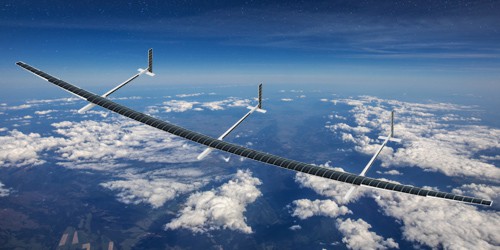Odysseus solar-powered plane could stay airborne indefinitely
Aurora Flight Sciences has revealed details of its Odysseus aircraft, a solar-powered autonomous plane that it claims could remain airborne indefinitely.

Scheduled to make its debut flight in 2019, Odysseus is one of several High Altitude Pseudo Satellites (HAPS) currently under development. These aircraft, generally exhibiting large wingspans covered in photovoltaic cells, will potentially replicate some functionalities of satellites but at a fraction of the cost. They are designed to operate in the stratosphere where they are continually exposed to sunlight during the day, allowing them to harvest enough solar energy to operate around the clock.
Odysseus features a 74m wingspan and its carbon fibre strutted frame means that it weighs in at less than a smart car. While it can theoretically stay in the air indefinitely, missions are likely to last months at a time. According to Aurora, Odysseus has a greater year-round global operating zone than any other vehicle in its class and can carry heavier payloads than other comparable HAPS. The company says the aircraft is particularly suited to climate and weather observation and is capable of measuring vegetation, ice coverage and flow rates, and even ground moisture.
Register now to continue reading
Thanks for visiting The Engineer. You’ve now reached your monthly limit of news stories. Register for free to unlock unlimited access to all of our news coverage, as well as premium content including opinion, in-depth features and special reports.
Benefits of registering
-
In-depth insights and coverage of key emerging trends
-
Unrestricted access to special reports throughout the year
-
Daily technology news delivered straight to your inbox










National Gas receives funding to develop Gravitricity underground hydrogen storage system
One single rock salt mine - Winsford - has 23 <i>MILLION </i>cubic metres of void and even allowing for 10% of that void set aside for hazardous waste...